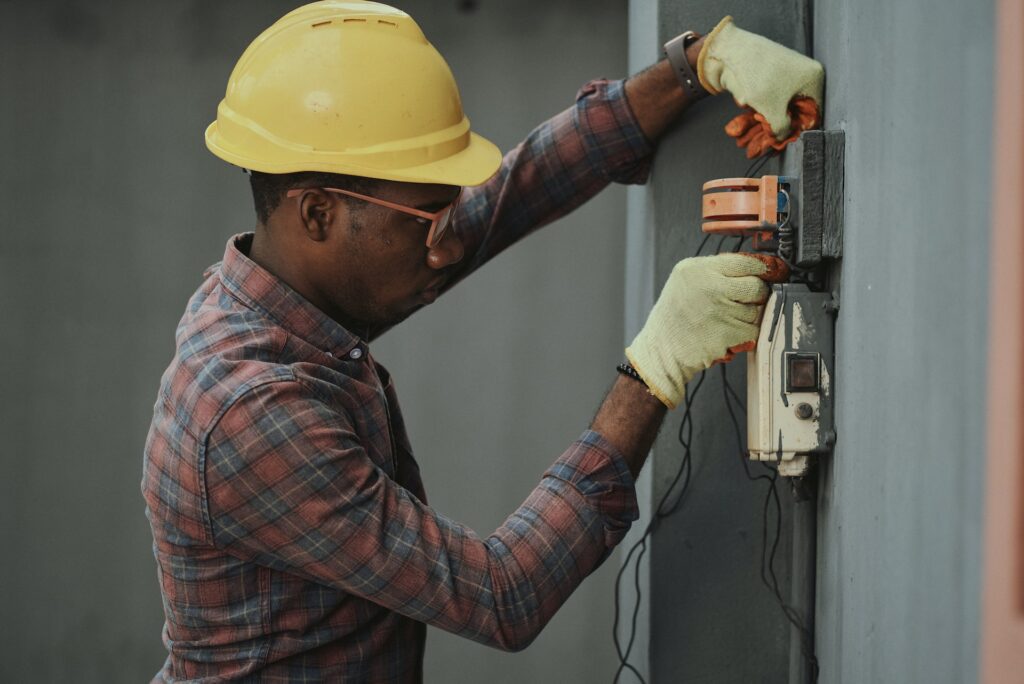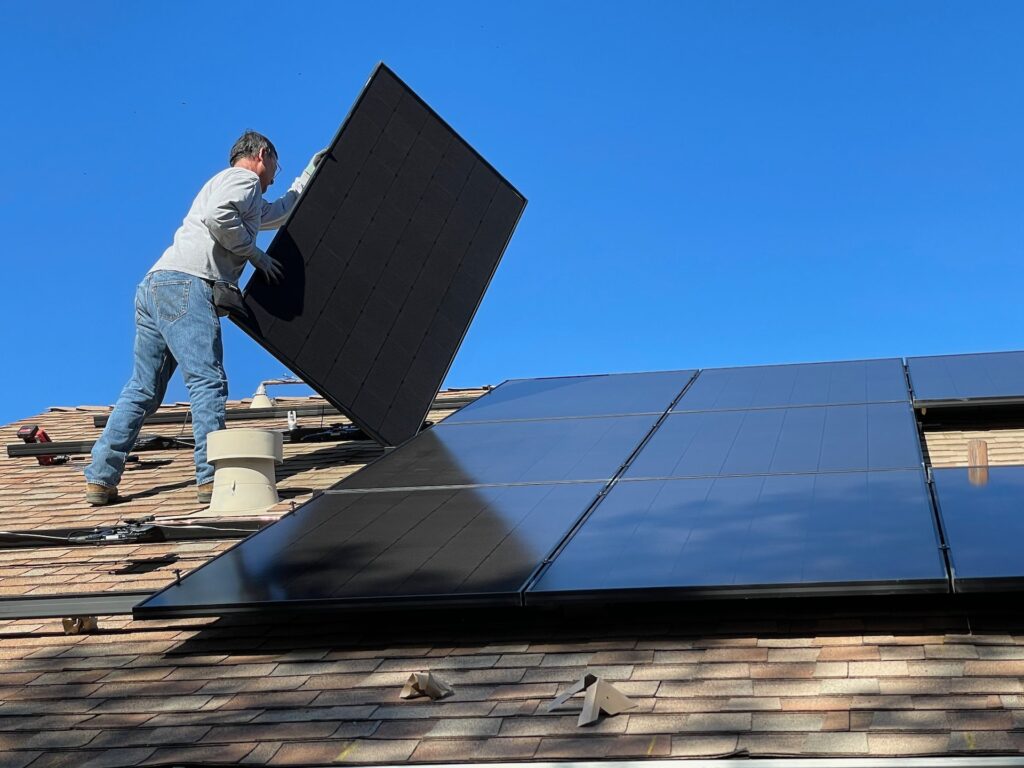
Everything You Need to Know about Residential Electrical Inspections
The electrical system in your home keeps the lights on and your appliances running smoothly all year round. When an electrical system malfunctions, these appliances won’t work, and electrical fires and other hazards may also occur. A residential inspection should ensure the electrical system remains in good working order.
Residential electrical inspections serve multiple functions. If you obtain a home electrical inspection, it will focus on evaluating the system and identifying any issues that need to be fixed. A code compliance inspection is designed to determine if the existing electrical system is up to code.
A comprehensive residential electrical inspection can effectively identify lousy wiring necessary to prevent fires. This guide will teach you about residential electrical inspections and when to request one for your home.

Understanding Residential Electrical Inspections
A residential electrical inspection ensures the home’s electrical system works as intended. During this process, an inspector will check each component within the electrical system, including fixtures, appliances, and outlets. They’ll also inspect the wiring that connects these devices to ensure there aren’t any damaged or exposed wires. A residential electrical inspection will ensure your system is safe and up to code.
All residential electrical systems must adhere to the National Electrical Code (NEC). This code provides extensive guidelines to ensure electrical designs are safe during and after installation. Complying with the NEC can prevent electrical hazards such as fires, shocks, and electrocution.
Reasons for Residential Electrical Inspections
There are several reasons why people obtain residential electrical inspections. For example, if a home is getting older and has electrical components in place for decades, an electrical hazard is far more likely to occur.
Whether the wiring becomes frayed or an outlet starts malfunctioning, a wide range of issues can occur when dealing with an aged electrical system. The best method of keeping these issues at bay is by performing frequent safety checks, such as residential electrical inspections.
A residential electrical inspection is also highly recommended if you’re about to sell or buy a home. As a seller, obtaining this inspection lets you inform the buyer that the home’s electrical system is in good shape. If you’re buying a home, the results from this inspection can help you determine if the property is worth the asking price.
If you plan on renovating or remodeling your home, scheduling this inspection is a good idea. Whether you upgrade your kitchen or change the layout of your bathroom, an electrical inspection is needed to ensure the work you do adheres to the proper codes.

What Does an Electrician Look for During a Home Inspection?
If you request an electrical inspection for your home, the electrician will look at many different components to ensure everything’s working as intended. For example, they’ll check the electric meter to ensure it’s logging the precise amount of electricity the property uses. Your electrician should also determine if the meter was installed correctly.
A significant component of any inspection involves evaluating the electrical panel. This assessment aims to verify that the panel isn’t damaged and the breakers aren’t loose. They’ll also look for burn marks or charring in the area.
The wiring throughout your home must be inspected to ensure it’s in good shape. If the wiring is the knob-and-tube variety, it must be replaced. The same is true if the wiring is made from aluminum. Most aluminum wiring is at least 40 years old, so you should consider replacing it.
The inspector should also check your home’s ground fault circuit interrupters (GFCIs) to ensure they work correctly. These outlets are used in kitchens, bathrooms, and laundry rooms to prevent an electrical shock or short circuit. All standard electrical outlets should be inspected as well. A thorough inspection is required to ensure the electrical system is safe and fully compliant.
Electrical Inspection Checklist
The following residential electrical inspection checklist should give you a more in-depth understanding of this process.
Lighting
- Does each light bulb have the necessary wattage for the fixtures they’re attached to?
- Do the lights flicker or dim frequently?
- Have the lights appropriately been upgraded or replaced?
Outlets and Wires
- Are the wires free of staples or nails?
- Are electronic devices safeguarded with surge protectors?
- Do the outlets emit a cool sensation?
- Are any of the cables frayed or broken?
- Do all light switches and outlets work correctly?
- Is some of the wiring exposed?
Electrical Fires
- Do all carbon monoxide alarms and smoke detectors in the home run properly?
- Are flammable goods kept far away from lights and electrical appliances?
- Does the home contain one or more multi-purpose fire extinguishers?
Electrical Panel
- Have any of the circuits been tripped?
- Have unused appliances been unplugged to avoid wasting too much electricity?
- Do all appliances work properly?
- Are the significant appliances plugged into wall outlets?
- Is the electrical panel entirely up to date?

Factors Affecting the Cost of Residential Electrical Inspections
Numerous factors affect the cost of residential electrical inspections, including location-based variations in the type of inspection being performed. For example, your area’s cost of living could determine how much inspectors charge to examine your home’s electrical system. If you live in a city with a high cost of living, you may need to spend more to obtain an inspection.
You can request three types of residential electrical inspections for your home, including everything from a general one to a code compliance inspection. A general electrical inspection usually costs around $110-$175. These inspections evaluate all residential buildings’ electrical systems, lighting, and equipment to ensure nothing needs to be repaired or replaced.
When considering the costs of code compliance inspections, remember that some electricians perform them for free. They’re usually included as part of the general inspection. However, obtaining a code compliance inspection separately can cost up to $100.
If you need a more comprehensive assessment, consider a home inspection. This process covers your property’s foundation, interior and exterior, ventilation, insulation, HVAC system, structural elements, and electrical components. You can expect these inspections to cost anywhere from $250-$500, depending on your location and the size of your home. Some of the additional factors that might influence inspection costs include the following:
- Accessibility: If the inspector has difficulty accessing your home’s electrical system, they may charge more. The same is true if the inspector drives a long distance to get to your home.
- Home age: If you have an older home, your electrical system is likely experiencing more significant problems, which may take longer to evaluate.
- Home size: In most cases, an inspector will take longer to evaluate larger homes than smaller ones.

Signs Indicating the Need for a Residential Electrical Inspection
Numerous signs indicate the need for a residential electrical inspection, which include the following:
- Burning odors
- Blown fuses
- Flickering lights
- Damaged outlets
- Sparking outlets
- Power trips
- Unexpectedly high energy bills
These issues need to be addressed promptly for safety reasons. If electrical problems aren’t fixed quickly, they could worsen, increasing the fire risk. While some of these signs might not point toward serious issues, having an inspector look at them is best to ensure everything’s in order.
DIY Electrical Inspection vs. Professional Inspection
When you own a home, performing DIY projects to reduce costs can be tempting. However, only trained home inspectors or electricians should evaluate your home’s electrical system. If you attempt this task, you might miss signs of electrical hazards.
While hiring an electrician or inspector may cost a few hundred dollars, there are many reasons why you should do so. If you miss a single electrical hazard, it could be the source of a fire that causes thousands of dollars in damage. By hiring a professional electrician to inspect your home, you can be confident that your electrical system is safe and up to code.
When you hire an electrician, you can expect to pay around $110-$300. However, most electricians offer a package deal that reduces the cost of each inspection. Make sure you obtain several quotes before hiring someone.
Conclusion
Residential electrical inspections are crucial to maintain the safety of any home. Whether you’re about to sell your home or renovate a couple of rooms, obtaining this inspection can give you peace of mind that your electrical system doesn’t need to be repaired or replaced. As a homeowner, it’s highly recommended that you prioritize your safety through regular inspections. Keep in mind that professional expertise is needed to ensure electrical system safety.

Jason Somers, President & Founder of Crest Real Estate
With over 15 years of professional experience in the Los Angeles luxury real estate market, Jason Somers has the background, judgement and track record to provide an unparalleled level of real estate services. His widespread knowledge helps clients identify and acquire income producing properties and value-ad development opportunities.
Learn more about Jason Somers or contact us.



